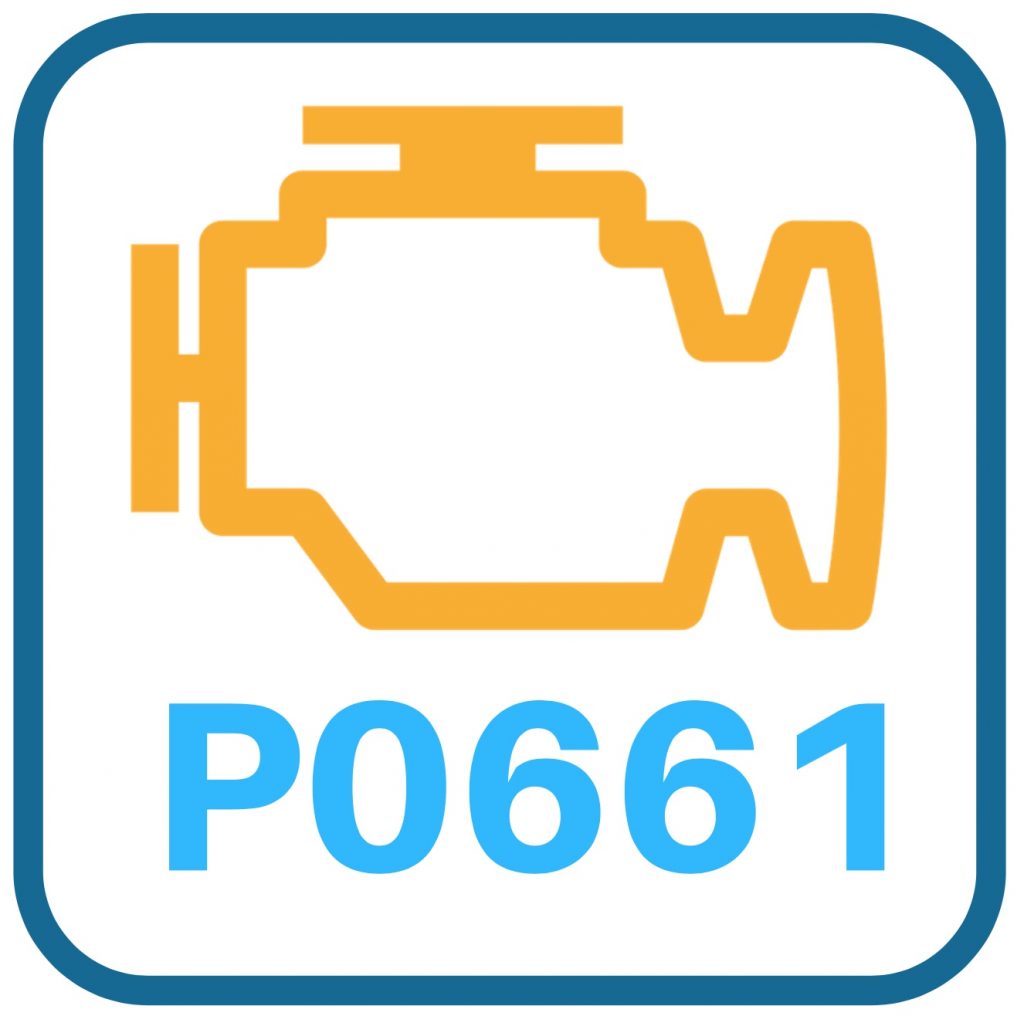P0661 is a relatively rare OBD2 trouble code. It indicates that the electrical reading coming from your Ford B-Max’s intake manifold tuning valve control circuit (on the bank 1 side) is below its specified operating range.
While P0661 is a generic code, so it has the same definition for all vehicles.
P0661 Definition: Intake Manifold Tuning Valve Control Circuit Low (Bank 1)

Here is the definition of P0661 for the Ford B-Max, broken down by its three parts.
Intake Manifold Tuning Valve Control
The intake manifold tuning valve control system is responsible for redirecting the air in your B-Max’s intake manifold.
It relieves air pressure on the opposite side of the intake manifold. Or, it can channel air down a completely different runner for power/efficiency purposes.
Circuit Low
The ECM or PCM (your B-Max’s central computer) receives a signal from the intake manifold tuning valve. There is a minimum and maximum voltage range that the PCM expects to see.
P0661 will be stored in the computer’s memory when this voltage level is below the minimum level.
If there is no voltage at all, you will get P0660. That code indicates that the intake manifold tuning valve circuit is open.
Bank 1
Bank 1 is the part of your vehicle’s engine with the first cylinder. You don’t need to concern yourself with this if you have an inline four-cylinder engine or inline-six.
Ford B-Max P0661 Symptoms
While you may not even notice anything wrong when your B-Max has P0661, we recommend having your vehicle looked at as soon as possible due to the location of the intake manifold tuning valve. If it were to break up (however unlikely that would be) the engine could blow.
Here are some of the most common causes of P0661.
- Repeated clicking noise from the intake (likely the intake manifold tuning valve has failed)
- Misfiring (due to poor air-fuel mixture)
- Engine down on power across the RPM range
- Decreased fuel mileage
- Rough idle
Ford B-Max P0661 Causes + Diagnosis

Here are the most common causes of P0661, as well as a solid diagnostic order to approach repairing your B-Max.
1. Check for Manufacturers Communications
Ford send communications via “technical service bulletins,” commonly referred to in the industry as TSB’s. While this site doesn’t keep a database of them, they are easy to find online.
If you click on the link above, it’ll take you to the NHTSA website in a new window. Look for your exact make, model year, and engine type. A TSB related to the intake manifold tuning valve gives you a great place to start your diagnosis with a known point of failure. It is imperative that you use the right model year, as the bulletins change from year to year.
2. Inspect the Wiring Harness
Start by locating the intake manifold tuning valve wiring harness. It’ll be accessible on the intake manifold. Inspect the harness for damage going to and from it.
Make sure that the pins where it connects to the intake manifold tuning valve are not damaged or corroded in any way. If they are, you’ll need to repair, repin, or replace them as needed.
Rodent issues cause this code sometimes. They like to lay on the warm engine when it’s cold and can damage the wiring harness, particularly around the intake.
3. Check for Voltage
Using a voltage meter, ensure that the wiring harness going to your B-Max’s intake manifold control circuit has the proper voltage. Check right at the harness going to and from the intake manifold tuning valve.
- If it does have the proper voltage leading to it, check to see if the signal returning to the PCM has a voltage level that’s within range.
- If the return voltage signal is too low, it’s likely that the intake manifold tuning valve has gone bad.
- If the return voltage IS WITHIN RANGE that you still should check it as it enters the PCM. If it’s dropped, you may have an issue as it travels through the wiring system.
Make sure that the ground used for the intake manifold tuning valve is solid. If it’s loose or looks like there could be corrosion underneath it, that could easily cause P0661.
4. Command the Intake Manifold Tuning Valve to Come On
Most higher-quality scanners can tell your B-Max’s intake manifold tuning valve to come on. If you hear a clicking sound coming from the intake when it’s on, that indicates that the tuning valve is binding or obstructed.
Unless you’ve run the vehicle without an air filter, it’s not very plausible that something got stuck in there, but not implausible. Check your air filter for a chipmunk nest or other rodent issue. If it looks good, you should be able to rule out obstruction.
That leaves binding, which can happen. These tuning valves are usually made from plastic and can and will bind and P0661 will be stored in the PCM’s memory.
5. PCM
It is rare that a PCM goes bad, but it does happen. If the voltage looked good coming in and out of the intake manifold tuning valve, and the voltage level going to the PCM is correct, that would be enough evidence to consider the PCM is bad.
Have a professional mechanic take a look at it before you get a new PCM to clear P0661. They can verify that you didn’t miss something. And, they have diagnostic equipment that can pinpoint voltage drops quickly and easily.
Conclusion
While there are quite a few reasons that your Ford B-Max may have P0661, the most common are wiring problems or a bad intake manifold tuning valve. Good luck diagnosing your vehicle!

